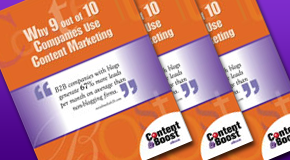Recently, the topic of duplicate content has become a major point of concern for content marketers looking to stay in compliance with Google Hummingbird. When posting content on a regular basis, the last thing that any content producer wants is to release a post that will be considered spam. Doing so could have disastrous consequences, and could lead to being blacklisted entirely from Google.
So, Google Webspam Team Leader Matt Cutts recently addressed the issue directly in a video. As it turns out, Google is not anti-duplication. In fact, they are mostly for it. According to Cutts, duplicate content is widespread over the Internet. In fact, duplicate content is required for quoting and linking purposes—and in order to stay near the top of Google’s search results, the search engine takes into account how well linked blogs are. In most cases, duplicating content is unavoidable.

“It’s important to realize that if you look at content on the Web, something like 25 or 30 percent of all of the web’s content is duplicate content,” he said. “People will quote a paragraph of a blog and then link to the blog, that sort of thing. So it’s not the case that every single time there’s duplicate content its spam, and if we made that assumption the changes that happened as a result would end up probably hurting our search quality rather than helping our search quality.”
Content marketers should pay attention to the fact that Google’s take on duplicate content does not mean you can go out and directly plagiarize other articles that you find online. While information is free to be repurposed, linked-to and quoted, stealing will certainly lead to negative implications for your website.
“It’s certainly the case that if you do nothing but duplicate content, and you are doing it in an abusive, deceptive, malicious, or a manipulative way, we do reserve the right to take action on spam,” Cutts said.
As for businesses that use multiple URLs that point to the same material, these websites will not be penalized. According to the Google Webmaster Blog, this is a common practice that might impact the overall performance of a site but will have no negative implications on SEO rankings from a compliance standpoint.
So, how do you stay well-linked and out of trouble when duplicating content? As the Google Webmaster Blog goes on to explain, businesses that rely on multiple pages, sub domains or domains with “substantially” duplicated content will be detected by Google and will thus be negatively affected. Additionally, websites should avoid taking a “cookie cutter” approach to content by producing articles to no original thought. Further, if your website is part of an affiliate program, don’t just leech off of the mother site—make sure that your website offers value.
Content marketers should remember the golden rule that if it feels spammy, it probably is. Flesh out your articles with original ideas and make sure that you take a new and fresh perspective. While not all duplication is created equal, you alone will be able to tell if the article you are creating is duplicated properly.
Edited by
Brooke Neuman















